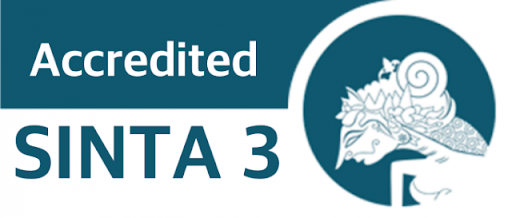Maşlāĥah Mursalah dan Dampak Sosial Ekonomi Revitalisasi Pasar Tradisional
DOI:
https://doi.org/10.37680/ijief.v1i1.908Keywords:
Market Revitalization, Social Economy, MashlahahAbstract
Traditional markets are places where traders and buyers meet which are marked by direct transactions and price bargaining. While revitalization is a process to revive something that was previously empowered. The impact of revitalizing traditional markets is in the form of social and economic impacts. Then what about the socio-economic impact of traders and buyers after market revitalization? Then how is the mashlahah review of this impact?. This type of research uses qualitative research, this research will understand the social or economic conditions of the community, which later is expected to be able to become input for the general public and government agencies in carrying out policies regarding the revitalization of traditional markets. From this research, it can be underlined that a policy will certainly lead to a conflict and the impact that accompanies it. Socio-economy is something that cannot be separated from people's lives. The perceived social and economic impacts are both direct and indirect. The social and economic impact that became the topic of the most was when the arrangement of the trading booths was changed and grouped according to the merchandise. In this study, it was shown that the benefit was only felt by some components of the community, then others did not really feel it as a result of the many perceived impacts.
Downloads
Published
How to Cite
Issue
Section
License
Copyright:
An author who publishes in Indonesian Journal of Islamic Ekonomics and Finance agrees to the following terms:
- Author retains the copyright and grants the journal the right of first publication of the work simultaneously licensed under a Creative Commons Attribution-NonCommercial 4.0 International License that allows others to share the work with an acknowledgment of the work's authorship and initial publication in this journal.
- Author is able to enter into separate, additional contractual arrangements for the non-exclusive distribution of the journal's published version of the work (e.g., post it to an institutional repository or publish it in a book) with the acknowledgment of its initial publication in this journal.
- Author is permitted and encouraged to post his/her work online (e.g., in institutional repositories or on their website) prior to and during the submission process, as it can lead to productive exchanges, as well as earlier and greater citation of the published work (See The Effect of Open Access).
License:
-
Attribution — You must give appropriate credit, provide a link to the license, and indicate if changes were made. You may do so in any reasonable manner, but not in any way that suggests the licensor endorses you or your use.
-
NonCommercial — You may not use the material for commercial purposes.
-
No additional restrictions — You may not apply legal terms or technological measures that legally restrict others from doing anything the license permits.
You are free to:
- Share — copy and redistribute the material in any medium or format
- Adapt — remix, transform, and build upon the material

This work is licensed under a Creative Commons Attribution-NonCommercial 4.0 International License.



.png)







